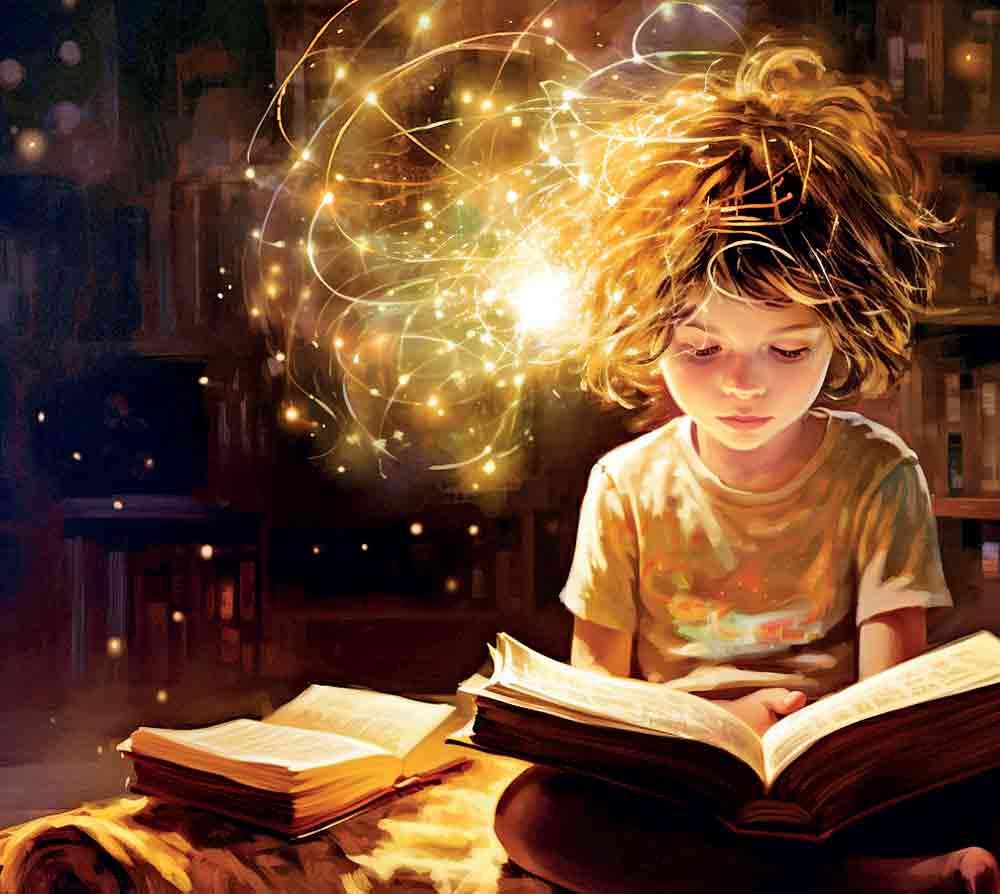
In a world where the flicker of a screen outshines the quiet rustle of a turning page, one wonders: is the ancient magic of reading slipping away? The digital age has given us connection, immediacy, and convenience; but at what cost? Beneath the constant scroll and endless notifications, something fragile and irreplaceable is at risk: the timeless enchantment of books. Children today are digital natives.
Tablets, phones, and gaming consoles hum around them like a constant orchestra of distraction. Social media feeds and interactive apps serve up rewards in seconds, conditioning them for quick thrills. Yet while screens pulse with instant gratification, books wait silently, demanding patience, imagination, and reflection. It is in that very stillness where their hidden magic lies.
The Alchemy of Books
 Reading is not simply an academic skill; it is alchemy. A book is more than ink and paper: it is a portal, a teacher, a friend. Unlike films or games that dictate every detail, a book entrusts children with the creative act of imagining. A dragon described in a novel will never look the same in two minds; each child paints it differently on the canvas of imagination. Books cultivate discipline in an impatient world. They teach children how to linger with ideas, how to wrestle with complex thoughts, how to sustain attention in a culture that thrives on fragmentation. Most importantly, books foster empathy. Each narrative is a rehearsal for compassion: stepping into the shoes of a lonely orphan, a daring inventor, or a wise elder is not just storytelling, but soul-shaping. The benefits go beyond the imagination. Language blooms through rhythm, cadence, and nuance. Vocabulary expands. Confidence grows. Even the body responds, research shows that six minutes of reading can lower stress more effectively than tea or music. In an overstimulated world, books are medicine.
Reading is not simply an academic skill; it is alchemy. A book is more than ink and paper: it is a portal, a teacher, a friend. Unlike films or games that dictate every detail, a book entrusts children with the creative act of imagining. A dragon described in a novel will never look the same in two minds; each child paints it differently on the canvas of imagination. Books cultivate discipline in an impatient world. They teach children how to linger with ideas, how to wrestle with complex thoughts, how to sustain attention in a culture that thrives on fragmentation. Most importantly, books foster empathy. Each narrative is a rehearsal for compassion: stepping into the shoes of a lonely orphan, a daring inventor, or a wise elder is not just storytelling, but soul-shaping. The benefits go beyond the imagination. Language blooms through rhythm, cadence, and nuance. Vocabulary expands. Confidence grows. Even the body responds, research shows that six minutes of reading can lower stress more effectively than tea or music. In an overstimulated world, books are medicine.
The Shadow of the Screen
Technology is not the villain, it is, in fact, a marvel. It transforms education, brings friends across continents within reach, and unleashes creativity in ways unimaginable a generation ago. But excess comes with shadows. Endless scrolling fragments the mind. Blue light steals sleep. Apps engineered for dopamine hits weaken attention spans, making sustained reading feel like climbing a mountain. Most poignantly, devices erode the small, intimate rituals that once defined childhood: a bedtime story read aloud by a parent, a shared silence as a family gathers with books, the comfort of being cradled in story. What children risk losing is not just literacy, but the soul of reading itself: the calm, reflective, imaginative, and deeply human act of losing oneself in words.
The Way Forward: Balance, Not Battle
The answer is not to wage war against technology but to restore balance. Families and schools hold the key. Sacred screen-free hours can be carved out when books rather than pixels command attention. Bedtime story rituals can be revived, creating memories far warmer and longer lasting than a video clip. Cosy book nooks can be set up in homes and classrooms, where books are not hidden but displayed proudly, inviting hands to reach for them. Technology itself can become an ally, through e-books, audiobooks, and interactive reading platforms, as long as these are balanced with conversation, reflection, or creative extension. And most powerfully, children imitate what they see. When adults read with genuine pleasure, they model a powerful truth: books are not chores, but treasures.
The Voices of Children
But perhaps the strongest argument for the power of reading comes not from research, educators, or parents, but from children themselves. In preparing this feature, we spoke to a group of young readers, curious to hear what books mean to them in their own words.
Sakya
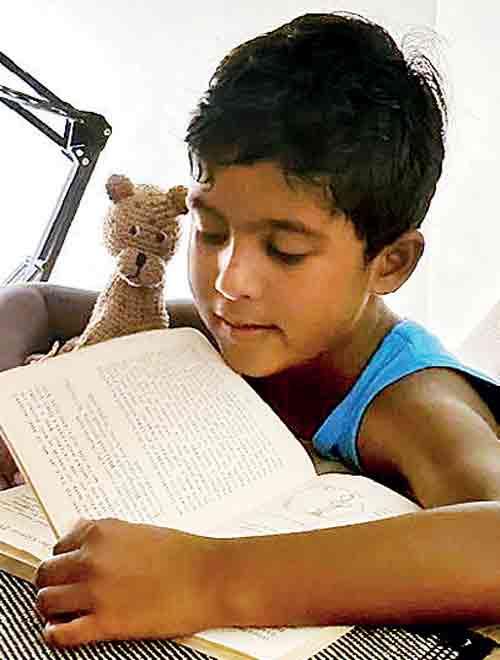
Age/Grade: Year 3
British School in Colombo
“When I read a book, it feels like I travel every day to new worlds. I become the characters, sometimes a clever trickster, sometimes a hero and it makes me feel alive, like I’m acting inside the story. My favorite is Roald Dahl, because his stories are full of magic and mischief. A tablet shows me things, but a book lets me become them.”
Batul Juzer
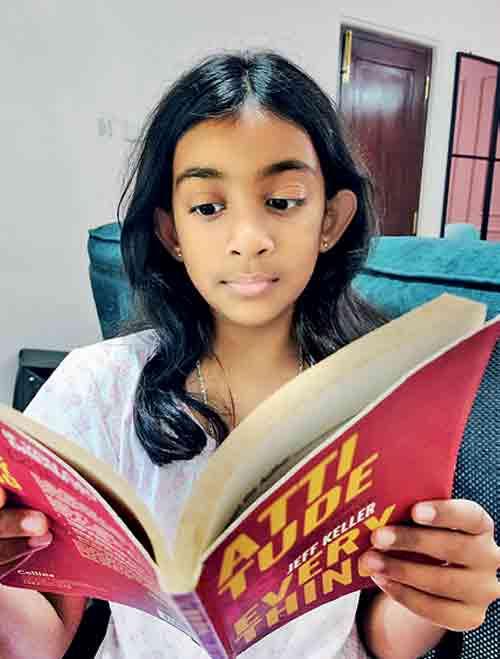
Age/Grade: Primary 5, Burhani Serendib School
“When I read a book, I feel like I am in a different world. I imagine all the words and characters to be real. When I watch tab, I see the same things over and over again - which becomes boring, and I don’t like it.”
Ziya Mamoola
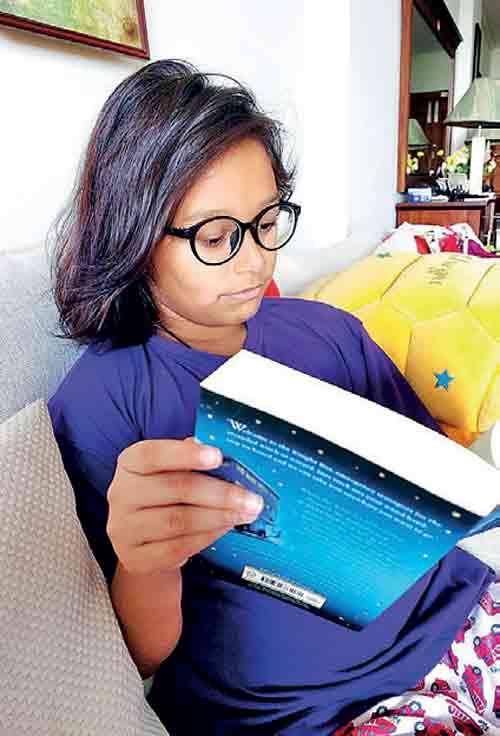
Age: 10 years
The British School in Colombo
When I read a book, I create my own magical world of my own fictional characters which in-turn help me create my own happy space. While using a tablet or laptop I become a part of the creators-world rather than my own.
M. Mithrajith
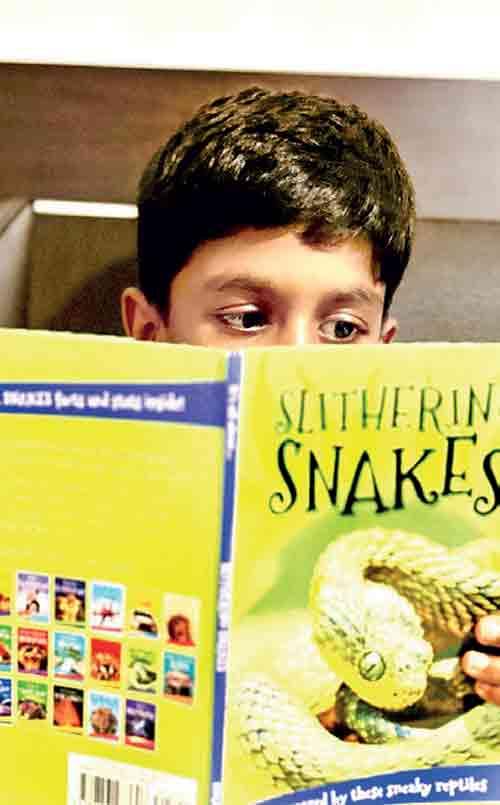
Age / Grade: 9 years old / Grade 4
S Thomas’ College, Mount Lavinia
“When reading book, I imagine so much and also get to know so many words. But when using a tablet, I just see for fun but don’t gain anything at the end. I love reading books about animals mostly.”
These voices remind us that the magic of reading is not theoretical. It is alive in children’s imaginations, shaping their emotions, their intellect, and their identities.
Why This Matters Now
We stand at a cultural crossroads. On one side lies the pixel, powerful and dazzling, on the other, the page, quiet and enduring. Technology will continue to advance, as it should, but if books fade into the background, we risk raising a generation fluent in speed but strangers to depth, experts in information but novices in reflection. Reading is not old-fashioned. It is revolutionary. Every book opened is a seed planted. Every story entered is a rehearsal for life. Every child who reads becomes a torchbearer of creativity, empathy, and wisdom.
A Call to Families and Schools
Let us protect the rituals that keep reading alive. Let us gift children not just with devices, but with shelves that sag under the weight of stories. Let us model the joy of reading in our own lives so children see that books are not assignments, but companions. And above all, let us listen to the voices of children themselves, because they remind us that books are not relics, but living wonders. At this crossroads between page and pixel, the choice is ours. Technology can complement reading, but it must never replace it. The spell of reading is too precious to lose. So, let us continue planting seeds. Let us continue turning pages. Let us continue giving children the timeless gift of books, because in the end, a screen may entertain, but a story transforms.










